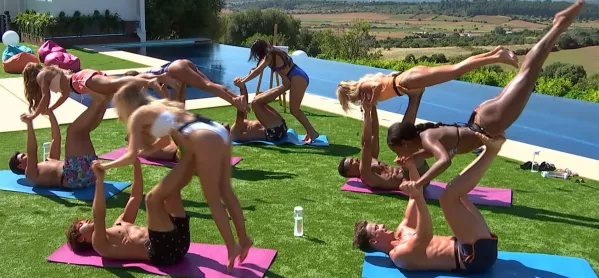- Home
- ‘Teachers need to talk about Love Island’
‘Teachers need to talk about Love Island’

Thanks to my Year 10 form group, my staffroom colleagues and the constant tweets about Alex, Kendall, Niall and Eyal, I fell into the dark side. It's somewhere I am yet to fully understand; somewhere that appears to have taken the nation by storm; somewhere that causes people to tweet variations of "I feel like a fat, pale hippo".
Yes, I succumbed and watched Love Island.
After one episode I found myself wondering…so why didn’t Alex get picked? Will Kendall value her connection with Niall over the abs of Adam? Who will get mugged off tomorrow?
I quickly snapped myself out of it, but I then recalled my Evolution 101 module at uni and forgave myself: humans are wired to gossip.
It is through the survival mechanism that we now call gossip that early humans knew who to be wary of, or who to seek protection and resources from. We simply cannot help wanting to know other people’s business.
So what, as a teacher, should we do about Love Island, if anything?
I am convinced that many of our pupils watch Love Island primarily for the reason above, as for teens, gossip is even juicier. And young people are more aware than we give them credit. If I needed more proof, my form shot me down with a “We’re not stupid, sir! We know most people don’t look like them!” after I went on a tirade against the role these types of shows play in contributing to negative body image.
Body insecurity
Should we avoid talking about it altogether, then? Some may think it advisable for a teacher to avoid the obvious topics, but a healthy debate about whatever is popular at a given time will surely develop young minds. In light of this, while a part of me dismisses such shows as harmless fun, there are some aspects I am uneasy with for the sake of our kids. And I do think we need to address them.
Firstly, I believe it inevitable that continual exposure to idealised media images of flawless human perfection will increase body insecurity. The kids may claim to be aware of the lack of realism in "reality" TV, but I worry for how long.
Being a science teacher, I remind my pupils of the major role of genetics in our body type. Love Island bodies are, for all practical purposes, impossible to obtain for a sizeable chunk of the population and this is not something for which we should be ashamed. Rather, we should own our differences.
Secondly – although I accept this is a generalisation – there seems to be a tendency for reality TV stars to desire fame and fortune by virtue of their mere existence. While I believe the desire for recognition is also inherently human, I think we should encourage our pupils not only to embark upon their own journey towards self-actualisation, but to admire others for their journeys. This is probably better for the global community than simply admiring someone because of the way they look, socialise or react in deliberately manipulated situations.
I discuss with pupils that while Tupac’s gunshot scars and tattoos made him infinitely cooler to my 16-year-old self, it was his innovation and his vocal opposition to social injustice that still resonates.
So, it may be tempting to shun Love Island and all who reside within it, but I think we owe it to our students to talk about it.
Omar Akbar is a science teacher and author of The Unofficial Teacher’s Manual: What they don’t teach you at training college
Register with Tes and you can read two free articles every month plus you'll have access to our range of award-winning newsletters.
Keep reading with our special offer!
You’ve reached your limit of free articles this month.
- Unlimited access to all Tes magazine content
- Save your favourite articles and gift them to your colleagues
- Exclusive subscriber-only stories
- Over 200,000 archived articles
- Unlimited access to all Tes magazine content
- Save your favourite articles and gift them to your colleagues
- Exclusive subscriber-only stories
- Over 200,000 archived articles



